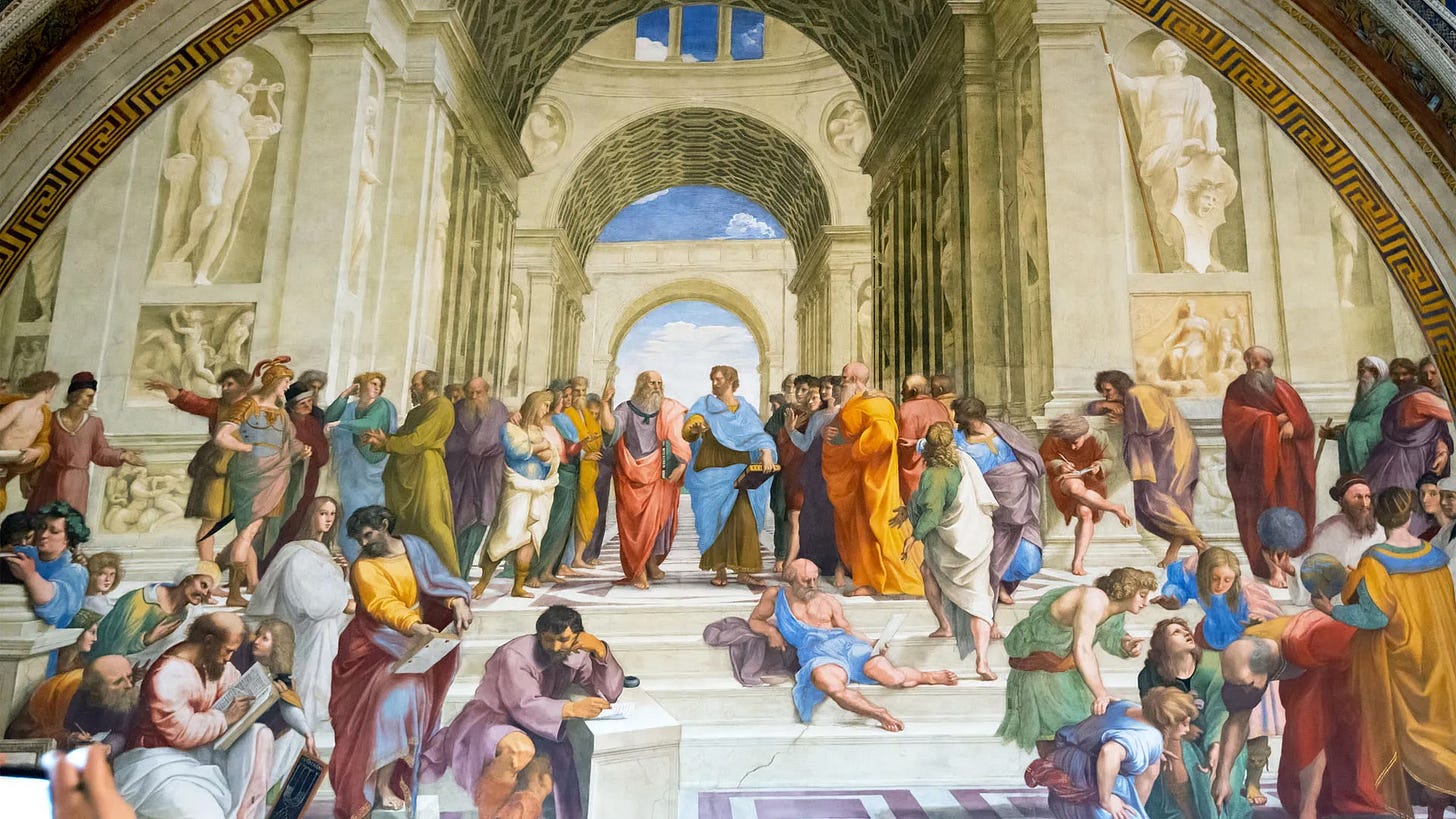Plato's Forms
An Obvious Observation from a Philosophical Novice
Forms can’t be false. It’s an epiphany that struck me while considering Plato’s Sophist dialogue late one evening while reading in my daughter’s room as she fell asleep. To any real philosopher out there, it’s a statement so obvious that it’s akin to discovering that water is wet. Forms by definition must be true.
This is important in the Sophist dialogue because Plato is attempting to define a sophist so that were you to see one out in the wild, you’d easily be able to say “there goes a sophist!” The sophist shows up in Aristophanes’ comedy play Clouds and is a person who trains others, for a fee, to win either side of an argument, irrespective of its truth. They are known to dabble in false statements, or in things that are not.
Yet an earlier philosopher named Parmenides had said:
“Never will this prevail, that the things that are not are — bar your thought from this road of inquiry.”
In other words, it’s impossible to think or talk about things that don’t exist or don’t have being.
For Plato, Forms are the true, eternal, unchanging, and perfect blueprints of things. A particular flower participates in the Form of Beauty.
If like the flower, speech participates in Forms, then speech must be about true things. In Sophist, the statement by Parmenides becomes a hurdle in the attempt to define the sophist. If it’s impossible to think or speak about non-being, what is the sophist speaking about? Does this mean that there are Forms for false things? Or does it mean that people are only able to speak truth, rendering all statements true, and truth relative?
This all became clear when I realized that Forms cannot be false. If a sophist lies, there is not an eternal Form of that lie. Rather, the false statement is something other than or different from the true Form. If the Forms exist, they cannot be a mix of true and false Forms. That would create chaos and the system would implode.
I realize that later philosophers will take issue with the Forms and that Plato will have more to say in the dialogues I have not yet read. But at this point in my reading project, I find it important to note that the Ancient Greeks had a concept of eternal, unchanging, and true ideas and that lies were a corruption of those things, not Forms in and of themselves.
You Might Also Like…
Here are some recent and upcoming releases from my wife and friends that I think you might enjoy:
Stephanie Staples Rostad
The latest Christmas song from my wife. “Missing Christmas” is for anyone who carries the ache of loss into the holiday season.
Kev Coleman
My friend Kev has a novel coming out on December 2nd called Our Name is Dare. It is “a high-stakes political thriller about the cost of truth—and the unimaginable chaos that follows government defiance.” I read an advance copy of the book and loved it. It’s really good. You can pre-order it from Landmark Booksellers. You can also join us on December 2nd for a book launch extravaganza at Landmark Booksellers.
Joel J Miller
Joel has written a book about the history of the book. It’s called The Idea Machine: How Books Built Our World and Shape Our Future. I also had the privilege of reading an advance copy of this book earlier this year and it is stunning. I’m guessing that you enjoy books. This book provides the history of the physical form of the book and it is absolutely fascinating. Joel’s utmost inquisitiveness shines through in this delightful book. It comes out November 18th and if you live in Franklin, TN, we have a launch event at Landmark on that date. You can also pre-order the book from Landmark Booksellers.






